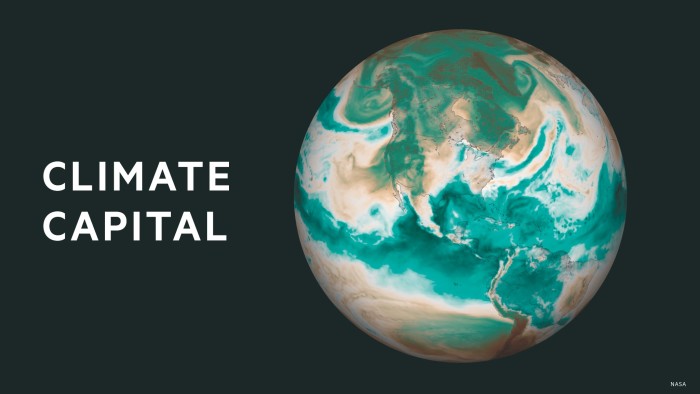Unlock the Editor’s Digest for free
Roula Khalaf, Editor of the FT, selects her favourite stories in this weekly newsletter.
Emissions-cutting pledges made by about 130 countries and 50 fossil fuel companies at the start of the UN climate summit will still leave the world far off track in limiting global warming to 1.5C above pre-industrial levels, according to an analysis from the International Energy Agency.
Together, the countries account for more than half of the world’s gross domestic product, the agency said.
The IEA has calculated that full implementation of a set of measures that are part of a new global decarbonisation alliance would only reduce the energy-related emissions gap between the current trajectory and a 1.5°C scenario by about a third by 2030.
“It is good, but it is not good enough,” IEA chief executive Fatih Birol told the Financial Times.
Birol said it was “imperative” that countries agree to an “orderly and just decline in fossil fuels in line with our international climate goals” at COP28, which is scheduled to conclude in three days.
Almost 130 countries, including the US, the EU and Canada, agreed last week to triple renewable energy capacity and double their energy efficiency, while 50 oil and gas companies signed up to a methane reduction pledge as part of COP28 president Sultan al-Jaber’s global decarbonisation charter.
Signatories to the charter agreed to triple the world’s renewable energy capacity to at least 11,000 gigawatts by 2030 and double the average annual rate of energy efficiency improvements to 4 per cent until 2030.
At the same time, the 50 fossil fuel companies — representing about a third of global oil and gas production — pledged to stop routine flaring of excess gas and eliminate almost all leaks of methane, a potent greenhouse gas, by 2030.
The companies include Saudi Aramco, TotalEnergies, BP, Shell and ExxonMobil. ExxonMobil chief executive Darren Woods attended COP28 for the first time to mark the group’s involvement in the UN discussions.
Birol, who was in Dubai for the climate summit, said oil and gas companies must boost their spending on renewables and clean energy technologies.
There was a “major gap” between the proportion of their investment spending ploughed into clean technologies and “how much they talk about . . . climate change in their speeches”, he said.
The critical assessment from the IEA follows UN secretary-general António Guterres’s reproach of the agreement brokered last week by Jaber, who also serves as chief executive of the Abu Dhabi National Oil Company. Guterres said the plans “clearly fall short of what is required”.
Recommended
This year the IEA said fossil fuel demand must fall by a quarter by the end of this decade for the world to successfully limit global warming to 1.5°C, the ideal goal of the 2015 Paris agreement. The global temperature rise is already at least 1.1°C.
The IEA stunned the oil and gas industry in 2021 when it said there was no room for new exploration projects if global warming thresholds were to be met. It has also forecast that demand for oil, natural gas and coal will peak before 2030.
In the past year the organisation has also found itself under sustained attack from the Opec oil and gas producer cartel, dominated by leading producer Saudi Arabia.
Climate Capital
Where climate change meets business, markets and politics. Explore the FT’s coverage here.
Are you curious about the FT’s environmental sustainability commitments? Find out more about our science-based targets here
Checkout latest world news below links :
World News || Latest News || U.S. News
The post COP28 fossil fuel pledges will not limit global warming to 1.5°C, says IEA appeared first on WorldNewsEra.

